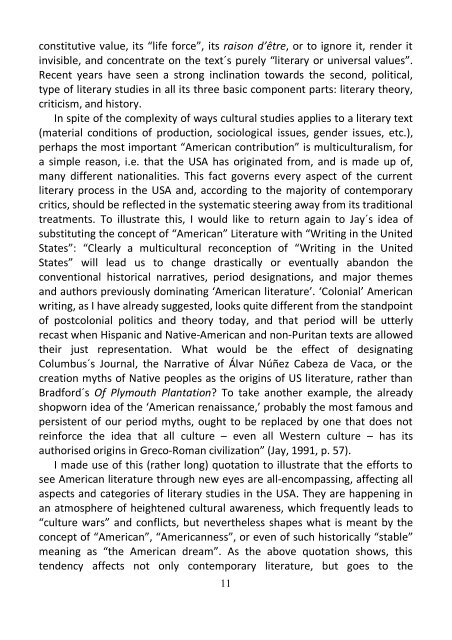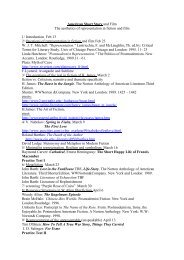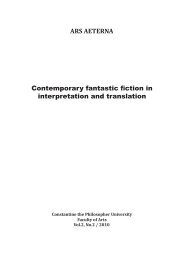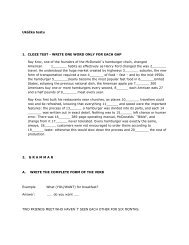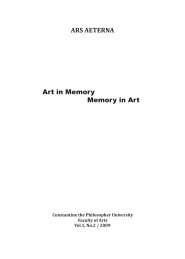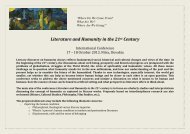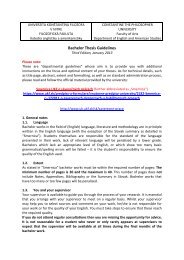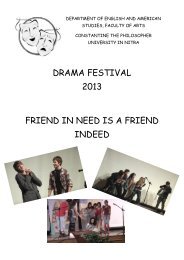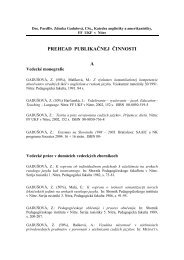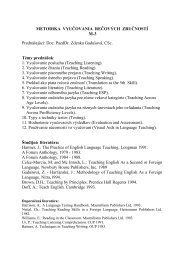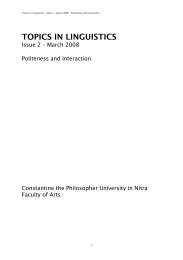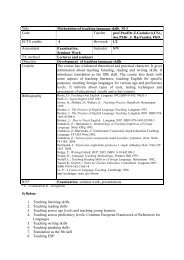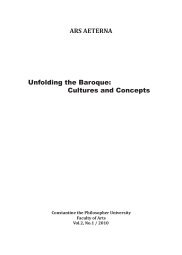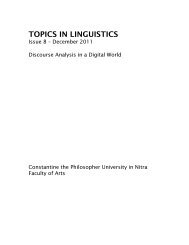Literature and Culture
Literature and Culture
Literature and Culture
You also want an ePaper? Increase the reach of your titles
YUMPU automatically turns print PDFs into web optimized ePapers that Google loves.
constitutive value, its “life force”, its raison d’être, or to ignore it, render it<br />
invisible, <strong>and</strong> concentrate on the text´s purely “literary or universal values”.<br />
Recent years have seen a strong inclination towards the second, political,<br />
type of literary studies in all its three basic component parts: literary theory,<br />
criticism, <strong>and</strong> history.<br />
In spite of the complexity of ways cultural studies applies to a literary text<br />
(material conditions of production, sociological issues, gender issues, etc.),<br />
perhaps the most important “American contribution” is multiculturalism, for<br />
a simple reason, i.e. that the USA has originated from, <strong>and</strong> is made up of,<br />
many different nationalities. This fact governs every aspect of the current<br />
literary process in the USA <strong>and</strong>, according to the majority of contemporary<br />
critics, should be reflected in the systematic steering away from its traditional<br />
treatments. To illustrate this, I would like to return again to Jay´s idea of<br />
substituting the concept of “American” <strong>Literature</strong> with “Writing in the United<br />
States”: “Clearly a multicultural reconception of “Writing in the United<br />
States” will lead us to change drastically or eventually ab<strong>and</strong>on the<br />
conventional historical narratives, period designations, <strong>and</strong> major themes<br />
<strong>and</strong> authors previously dominating ‘American literature’. ‘Colonial’ American<br />
writing, as I have already suggested, looks quite different from the st<strong>and</strong>point<br />
of postcolonial politics <strong>and</strong> theory today, <strong>and</strong> that period will be utterly<br />
recast when Hispanic <strong>and</strong> Native-American <strong>and</strong> non-Puritan texts are allowed<br />
their just representation. What would be the effect of designating<br />
Columbus´s Journal, the Narrative of Álvar Núñez Cabeza de Vaca, or the<br />
creation myths of Native peoples as the origins of US literature, rather than<br />
Bradford´s Of Plymouth Plantation? To take another example, the already<br />
shopworn idea of the ‘American renaissance,’ probably the most famous <strong>and</strong><br />
persistent of our period myths, ought to be replaced by one that does not<br />
reinforce the idea that all culture – even all Western culture – has its<br />
authorised origins in Greco-Roman civilization” (Jay, 1991, p. 57).<br />
I made use of this (rather long) quotation to illustrate that the efforts to<br />
see American literature through new eyes are all-encompassing, affecting all<br />
aspects <strong>and</strong> categories of literary studies in the USA. They are happening in<br />
an atmosphere of heightened cultural awareness, which frequently leads to<br />
“culture wars” <strong>and</strong> conflicts, but nevertheless shapes what is meant by the<br />
concept of “American”, “Americanness”, or even of such historically “stable”<br />
meaning as “the American dream”. As the above quotation shows, this<br />
tendency affects not only contemporary literature, but goes to the<br />
11


